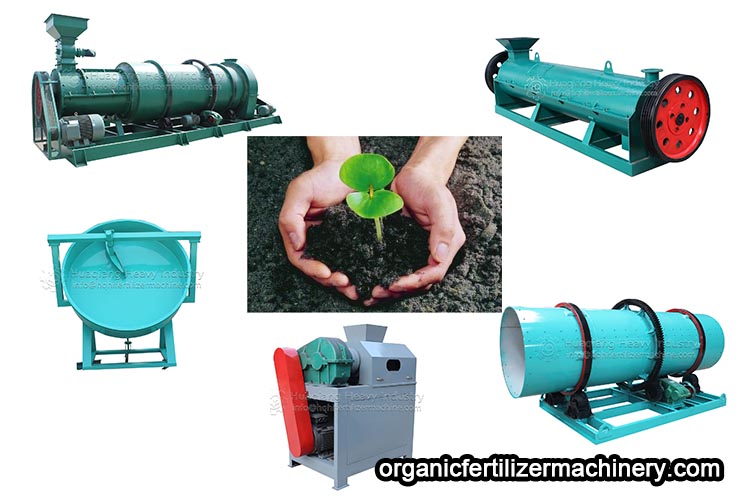Granulators are essential core equipment in fertilizer production lines. Acting like a "transformer," they transform powdered and lumpy fertilizer raw materials into granules, facilitating storage, transportation, and application, and playing a key role in improving fertilizer utilization.

By definition, a granulator used in fertilizer production is a mechanical device that transforms fertilizer raw materials into a regular granular form through specific physical or chemical means. Its core function is not only to change the fertilizer's appearance but also to optimize its performance. Powdered fertilizers are prone to clumping and drifting, resulting in significant losses during transportation and difficulty in evenly spreading them during application. Granulated fertilizers processed by granulators, however, are significantly more stable, less prone to moisture absorption and clumping, reducing losses during transportation and allowing for precise control of application dosage to avoid waste. Furthermore, the granular structure facilitates the slow release of nutrients in the soil, prolonging its effectiveness and increasing crop absorption and utilization.
Common fertilizer granulators are available in a variety of types to suit different raw materials and production needs. Double roller press granulators use mechanical extrusion to compress raw materials into granules. They are suitable for granulating dry powder raw materials with low moisture content, such as urea and diammonium phosphate (DAP) mixed fertilizers. They feature low energy consumption and high granule strength. Disc granulators utilize the rotation of a disc to cause the raw materials to roll and granulate within the disc under the influence of centrifugal force and friction. They are suitable for granulating raw materials with a certain moisture content, such as organic fertilizers and compound fertilizers. They are simple to operate and have a high granulation rate. Rotary drum granulators use the rotation of the drum to continuously tumble and agglomerate the raw materials into granules. They are highly efficient and suitable for large-scale fertilizer production and are commonly used for industrial granulation of compound fertilizers.
With the increasing demand for high-efficiency fertilizers in agriculture, granulators are also undergoing continuous upgrades. Today's granulation equipment focuses more on energy conservation and environmental protection. It uses new motors to reduce energy consumption and is equipped with dust recovery devices to reduce pollution. Furthermore, intelligent control systems enable precise control of temperature, humidity, and granule size during the granulation process, further improving fertilizer quality. It can be said that the development of granulators has promoted the advancement of the fertilizer industry and provided strong support for agricultural production.